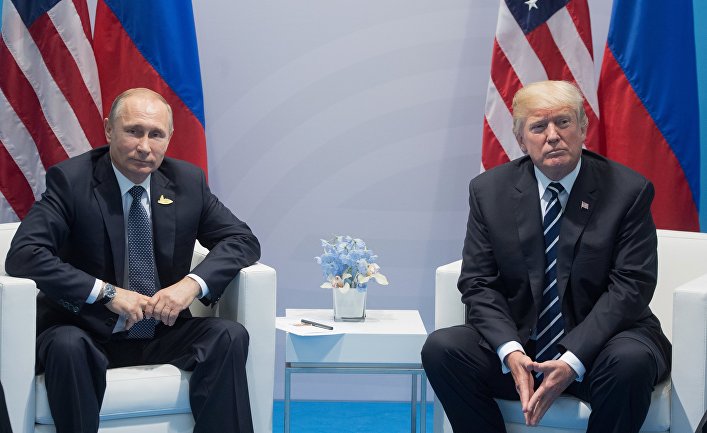The EU publics are divided between those who fear fracking and those who fear Gazprom and so far, the former fear is trumping the latter. France and Bulgaria have both banned fracking under pressure from the public, but Poland is marching on, its officials relentlessly insisting that fracking is safe. The end victory for Gazprom would come in the form of a European Commission ruling banning fracking-a ruling which would be applied to all EU countries, including Poland which has shown more political will to stand up to the Gazprom boogey man than others.—Jen Alic, The Christian Science Monitor, 12 September 2012
The European Commission’s investigation of Gazprom is extremely serious for the Russian government-controlled gas company. This is no small bureaucratic inquiry. The antitrust investigation is being undertaken by the commission’s Directorate General for Competition. As Microsoft knows, DG Competition does not give up, and it does not tend to lose. In fact, DG Competition has not lost an abuse-of-dominance case before the European Court of Justice since the EU’s antitrust rules came into force in 1958.—Alan Riley, The Wall Street Journal, 12 September 2012
While Gazprom and the EU are locked in this stranglehold, others will see an opportunity. Anybody else with gas to sell and ways to get it to Europe has an advantage here. Over and over again, Russia has shown that it is an unreliable energy source; expect more EU countries to seek out ways to undermine Russia’s position as their key supplier.—Walter Russell Mead, The American Interest, 12 September 2012
Relations between natural gas suppliers and consumers in Europe have come to a crunch point over pricing as buyers seek to wriggle free of long established but costly contracts and benefit from newly available sellers elsewhere. The clash is becoming more political as sparks fly between the European Union and its leading gas supplier Russia. Discoveries of natural gas reserves in East Africa, Australia, the Mediterranean Sea, as well as the shale gas boom in North America are also expected to help push natural gas above coal as the second biggest fuel source by 2030 and later could even challenge oil. Europe will, in the long term, decrease the region’s dependence on supplies from Russia and the Middle East, thus reducing their dominance in energy markets,” Frost & Sullivan Consulting Analyst Michael Mbogoro said in a report published on Wednesday. "It is likely to also give rise to new geopolitical alliances at the expense of old,” he added.—Reuters, 12 September 2012
Newly discovered shale gas reserves around the globe are likely to promote consumption of gas as both an energy source and an affordable feedstock for a wide variety of chemicals and materials. "The rapid development of shale resources is set to change dramatically the current energy assets globally,” says Frost & Sullivan Consulting Analyst Michael Mbogoro. Europe will, in the long term, decrease the region’s dependence on supplies from Russia and the Middle East, thus reducing their dominance in energy markets. It is likely to also give rise to new geopolitical alliances at the expense of old.—Sacramento Bee, 12 September 2012
The UK’s independent Climate Change Committee (CCC) has today warned unequivocally that the government would breach the Climate Change Act if it pursues Chancellor George Osborne’s plans for a surge in new gas investment. The letter also criticises recent statements from DECC in support of increased gas investment, which were wrung out of the department by Osborne during long-running negotiations over the future of renewable energy subsidies. The letter represents a major blow to Osborne who has been campaigning for the Energy Bill to increase support for gas investment.—James Murray, BusinessGreen, 13 September 2012
Energy secretary Ed Davey has played down the importance of shale gas to the UK’s energy plans. This will put him at loggerheads with coalition colleagues, including Tory environment secretary Owen Paterson. The energy minister faces a tough opponent in the form of George Osborne, a known supporter for increasing the role of natural gas in the UK’s plans for energy and the economy.—egovmonitor, 12 September 2012
The French government is open to explore shale gas extraction in France, French daily le Figaro reports Wednesday, a few days ahead of a government-led conference on the country’s energy mix. The government could announce at its energy conference the creation of an ad-hoc commission to consider an experiment in shale gas extraction, the newspaper reports, citing a person close to the conference.—Fox Business News, 12 September 2012
Italy’s plans to double domestic production of oil and gas to slash its energy bill and boost economic growth face stiff headwinds from the kind of chronic red-tape that has left one major project paralysed by 11 years of paper shuffling. In a draft copy of a new national energy policy, seen by Reuters, the government said it wants to take hydrocarbon output to 14 percent of overall energy needs by 2020 from the present 7 percent, mobilizing investments of around 15 billion euros (11.8 billion pounds).—Reuters, 12 September 2012
Saudi Arabian Oil Co. is set to increase the number of drilling rigs it will use in coming months as it plans for an exploration push for shale gas and hydrocarbons in the Red Sea, a local energy analyst said. Saudi Arabia may hold the fifth-largest deposits of shale gas, behind China, the U.S., Argentina and Mexico, with as much as 645 trillion cubic feet of recoverable fuel.—Wael Mahdi, Bloomberg News, 11 September 2012
Britain risks being left in the slow lane as the global market for cheap, but controversially extracted, shale gas gathers pace, triggering fears of a talent drain. The so-called "unconventional” source of gas supply has transformed the energy landscape in the United States and some early efforts have been made to unlock the UK’s potentially significant shale gas reserves. Colin Welsh, chief executive of corporate finance specialist Simmons & Company International, said there was "massive potential” in the UK but a number of hurdles had to be overcome. "If we don’t take this opportunity to boost our economy, create jobs and meet demand for energy, the opportunity will just pass us by,” said Welsh.—Scotland on Sunday, 9 September 2012
Dr. Benny Peiser



_jpg/250px-ElbeDay1945_(NARA_ww2-121).jpg)









